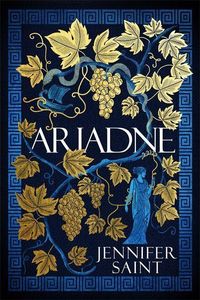

The wails must have filled the air as mothers watched their children sicken and die before their eyes, soldiers slumped across the battlefields, and the mighty city-which found that it was, like all cities, made strong only by weak, human flesh-began to sink beneath the piled-up corpses of the plague my father had brought. Zeus, the all-powerful and ferocious ruler of the gods, enjoyed strength in mortals and granted his favored Minos the boon of a terrible plague that rolled across Athens in a storm of disease, agony, death, and grief. He exacted a terrible price for peace from Athens.

My father’s bloody travails were not limited to Scylla or Nisus, I know. I saw her weighed down in the tumultuous water not just by the iron chains in which my father had bound her but also by the terrible truth that she had sacrificed everything she knew for a love as ephemeral and transient as the rainbows that glimmered through the sea spray. I could well believe the truth of it, for the gods did enjoy a prolonged spectacle of pain.īut when I thought of Scylla, I thought of the foolish and all-too-human girl, gasping for breath amid the froth of waves churning in the wake of my father’s boat. Far from giving her escape from her cruel fate, she was immediately set upon in an endless chase by the crimson-streaked eagle bent upon eternal vengeance. Stories told that, at the moment of her drowning, Scylla was transformed into a seabird. My father, Minos, liked to tell me that story of how his unimpeachable moral conduct won him Megara, the subservience of Athens, and the chance to set a shining example of his impeccable judgment. I am Ariadne, princess of Crete, though my story takes us a long way from the rocky shores of my home.


 0 kommentar(er)
0 kommentar(er)
